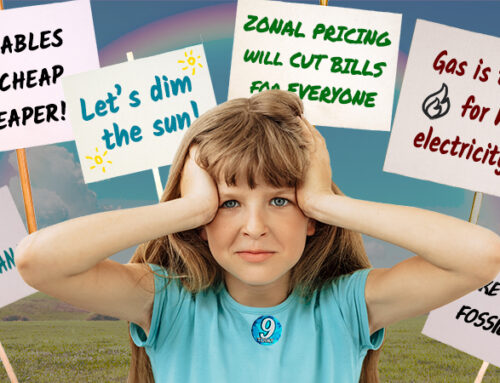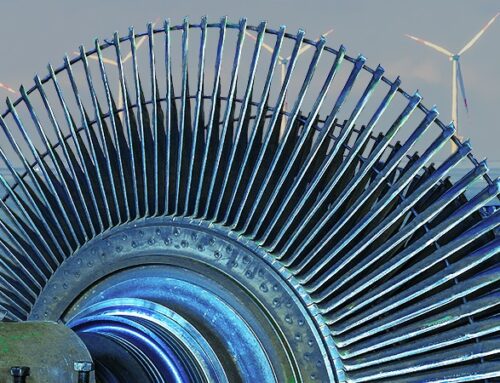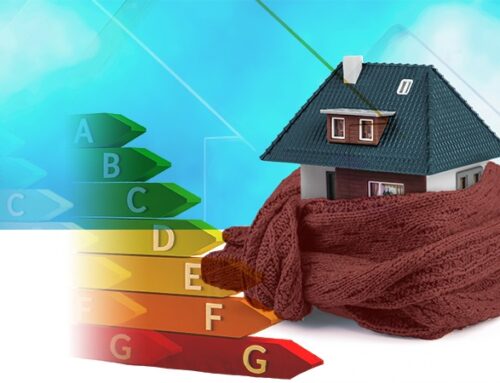With the largely expected news that Liz Truss would become the new Prime Minister of the United Kingdom, speculation is growing about the support that will be offered to consumers ahead of the increase in the price cap that is due to come into effect on 1 October. Rumours abound that the Government will freeze the cap at close to the current level of £1,971 until the end of next winter (sources say it would be held to £2,500, which would be close to the current level once the existing £400 rebate, which will still be implemented is factored in). Suppliers would receive Government loans to cover the difference which would be repaid through higher bills over 10 or 20 years. This is more or less the proposal that Scottish Power mooted a few weeks ago – it was then, and still is, a bad idea.
“I will deal hands-on with the energy crisis caused by Putin’s war. I will take action this week to deal with energy bills and to secure our future,”
– Liz Truss, Prime Minister of the United Kingdom of Great Britain & Northern Ireland
Of course, few consumers can afford energy prices to treble – recent forecasts suggest the cap could exceed £6,000 early next year – and I fully support a subsidy scheme for consumers. But this proposal is not the right way to do it. Not only is it an extremely blunt tool which will subsidise the wealthy to the same degree as the poor, it will fail to incentivise demand reduction and will create a very long-term and complex overhang on the market. It will require the Market Stabilisation Charge to continue until the expiry of the loans, possibly 20 years from now, to make sure that new entrants do not undercut legacy suppliers that hold these loans. It will further stagnate an already moribund retail market.

I would like to send this message to Jacob Rees-Mogg, the new Business Secretary…
An alternative approach
In the short-term, a blunt, market-wide tool is inevitable. There is little time for a more nuanced approach in the short time between now and the start of the new price cap period. But from January, I would like to see a more targeted approach, possibly replacing the subsidised price cap with a social tariff linked to income tax bands. For example, people who do not pay income tax and/or receive benefits would pay the lowest energy costs, people on the marginal tax rate would pay an intermediate amount, and people that pay higher rate tax would pay the market rate. (This is not a million miles away from Ed Birkett’s suggestion of fixed price subsidies for households with higher levels for those on benefits.)
I would also like to see VAT relief on all domestic energy bills, and for green levies and the SOLR costs to be moved to general taxation. Removing the SOLR costs from bills would restore the link between consumption and cost, since half of these costs are applied to the standing charge, meaning consumers cannot avoid them through cutting energy use. Suspending carbon trading would also provide a marginal price benefit, at no detriment to the environment, since there is very little fossil fuel generation left that is not gas, and gas is so much more expensive that the carbon price is not currently providing any indication for fuel switching.
The price cap also does not apply in Northern Ireland. I would like to see some measure of support offered to consumers there, although I am not sufficiently familiar with the political context to comment on how that could be delivered. Similarly, provisions should be made for people that use heating oil or LPG instead of natural gas to heat their homes, and Ofgem needs to quickly get to grips with its new role as heat networks regulator to ensure that those consumers are also protected.
Businesses also need support. Many small businesses are at the brink of failure as a result of high energy prices, and there is no cap outside the domestic market. The failure of small businesses will harm the economy, and high energy costs across the industrial and commercial sector will mean higher prices of goods and services which will also harm consumers. Supporting businesses will help to reduce this type of contagion effect from high energy prices.
In some ways, this lends itself to a wholesale market intervention rather than a retail market intervention, but it’s hard to see how this can be structured. The Iberian scheme has had some unintended consequences – gas-fired generation and electricity exports have both increased since the cap on the gas price for electricity generation was introduced. It would also introduce un-necessary complications, for example where generators buy from other generators to cover unplanned outages.
How it should be paid for
As noted above, I do not agree the subsidy to consumers should be paid for by consumers themselves through higher bills over the long term. Right now, the Government should borrow to fund the subsidy and recover the costs over time through taxation. The Treasury does have a partial hedge for the exposure through its North Sea tax and royalty income – the higher oil and gas prices are, the higher these receipts are. Encouraging more domestic oil and gas production will not only support security of supply, it will also boost this income.
I would not support any extension to the windfall tax on oil and gas producers. Labour would like to close the “loophole” which makes new exploration and production in the North Sea deductible from the profits that drive this tax, but without this deduction, producers might shy away from developing new production on the UKCS in favour of easier territories elsewhere. The North Sea is an increasingly challenging environment for E&P since the “easy” fields have already been exploited. If we are to maximise the benefits of increased global production we need as much of it to take place within the UK as possible, so it is important not to create a dis-incentive to this investment.
Another source of funding should be a windfall tax on renewable generators applicable to anyone with a Renewables Obligation subsidy that doesn’t sell under a fixed price PPA, and CfD holders that have failed to activate their CfDs. In the first instance, a revenue-tax could be applied to renewable generators with an allowance of perhaps £100 /MWh – anyone earning more than this would pay the tax, which would exclude anyone with a fixed price PPA because it is unlikely there are any at that price. I would not include nuclear plants in the windfall tax since (1) there are few of them, and (2) we need EDF to be incentivised to keep them running for as long as possible – a windfall tax would have the opposite effect.
I don’t believe that this will pay for the subsidies in full – I think there is a degree to which we must grit our teeth and accept that we’re in for a difficult few years, and remember that there are times in life when sacrifices are needed to support a greater good. Caving in to Putin now is unlikely to be the end of the story – we caved in in 2014 when we overlooked the annexation of Crimea, and this only encouraged him to invade Ukraine. If we do not stop him now, who’s to say he wouldn’t move on to Poland and/or the Baltic states in a few years’ time once he has re-built his military capability on the back of fossil fuel sales, with his energy blackmail continuing all the while.
As well as providing support for consumers, we need to re-balance our energy markets, to reduce the risks of a similar crisis in the future. I don’t particularly believe in energy independence – there is nothing intrinsically wrong with trading with reliable partners for energy – but we need to rely less on spot market purchases and build a portfolio of long-term fixed price gas contracts from different suppliers over different tenors and at different prices. We should properly explore gas storage, not just Rough, but at a scale that would make a difference in a crisis, proportionally similar to the gas storage in the EU. If we lack sites that can be developed economically then constructing more gas interconnectors with Europe would allow is to store gas in their facilities to be re-imported in winter. We effectively do this at the moment, but only at a small scale over two interconnectors.
Of course, despite not attempting to be energy independent, I would like to see more domestic oil and gas production. Although we may not use oil very much for heating and electricity generation, at times like these, the tax receipts and royalties are useful in defraying the wider costs of the crisis. We also need a more diversified and reliable electricity system with nuclear power providing a hedge against a combination of high gas prices and periodic low wind output. And I would like to pause renewables subsidies in favour of dealing with heat losses in homes – lower energy demand is always useful whereas more wind turbines are only useful when it’s windy. This would provide a significant long-term cost benefit to consumers.
Longer-term, we should also explore changing the way wholesale electricity prices are set so that renewable generation is paid on a cost-plus basis and everything else is paid on the existing marginal cost basis with a weighted average setting the price paid by consumers, ideally without a return to central dispatch.
I have lots of ideas about security of supply and the energy transition, but will save those for another day…






The complexity of managing energy payments by income would be very difficult. Firstly the Inland Revenue are overwhelmed as it is, they don’t know what income a household has, their systems work on individual’s income and allowances and are always 18 months to 2 years behind. Benefits for income are based on benefit units of which there may be 2 or more in a household. Again you could end up overpaying some households. That is not to say the arrangement so far announced might not be over generous in a few cases. Sixty years ago the civil service was organised on military lines, compulsory postings with just a few days notice weren’t common but happened in order that tasks such as petrol rationing with the issue of petrol coupons could be set up in days. But with more men and women working with child care roles and couples both having jobs needed to support a household the flexibility of shifting large numbers of staff or requiring spades of compulsory overtime are largely gone.
I won’t offer a solution to help funding, I too don’t believe the industry should be given loans to ease bills to be repaid. We do need everyone, households and industry to scale back their energy consumption and the blunt instrument of cost is one way of dealing with it. If we could identify the real hard cases and put in place means to insulate, set heating systems to be efficient that with some local financial support might be the way to go. Whether hard pressed local authorities could coordinate charitable organisations and heating engineers to address issues is a big ask but probably a more targeted solution with a better outcome in the end. Rented properties could be forced to insulate with the offer of mortgages on the property to fund the work.
“Rented properties could be forced to insulate”
Private landlords particularly are being hammered at present – the compulsory C-rating coming in for new rentals in 2025. Too much ‘forcing’ by this Marxist government of late.
I think the EPC needs to be reformed, so I disagree with the link to EPC and lettings or mortgages. However, many landlords are not co-operative when it comes to repairs let alone building upgrades. I would set up a system where tenants were able to do the work themselves and set off the costs against rent, but to protect landlords, I would want local councils to approve and certify the works and for rules on offsetting to be set centrally eg it cannot be more than x% per month. Landlords would have the choice to do the work themselves or accept lower rent for a period of time. I would also use grants to make sure that people are not forced to pay for work they cannot afford.
You are absolutely right to insist upon a clear distinction in policy terms between minimising the impact of real fuel prices upon those on the lowest incomes, and upon the vast majority of us . We should not be insisting the our children underwrite our current profligacy for the next 20 years.
Fuel poverty levels are exacerbated by our failure as a society to improve the energy efficiency of our elderly building stock, Truly there is so little point in underwriting the cost of putting hot water into a bath whilst failing to install any bathplugs.
I mostly agree with you, but the taxpayer can only pay for so much. If the costs of SOLR and price caps are moved to general taxation then there’s no incentive to use less. (Though we should move it from the standing charge).
You rightly state that lower demand is the only solution we can genuinely lock in and that has to (sadly) come from disincentiving using unnecessary energy at home and in business.
What we don’t see is a huge “public health” type campaign on energy usage – that is needed now, it needs to be specific in what’s cool and what’s not (e.g. leaving your games console on standby) and it needs to persist.
I don’t see the quality of income data being provided to suppliers (presumably from HMRC) or its use ever being slick enough to be successful. Would you do it based on P60 or a live feed? What if you get a bonus? Lose your job? Have a zero hours contract? Get paid through an intermediary or Ltd company? I don’t think suppliers are up to that.
I do also agree that renewables shouldn’t benefit from windfalls if they took subsidies.
As always, great read.
I agree with the general sentiments about patching the markets. I would personally scrap all renewable subsidies and all taxes and regulatory disincentives for our fossil fuelled future supplemented by nuclear. There is little thought to the fundementals of fuel type, the cost, reliability, despatchability, storage and transport practicalities and costs of fuel types. It ought to be obvious to everyone that wind and solar even if there were enough transmission lines and storage will not be the answer to 24×7, affordable energy and economic prosperity. The current crisis shows renewables don’t deliver and whilst gas as peaking plant and coal + nuclear as baseload makes sense, you need to also diversify where it is mined or drilled and not get it all from non Western powers who you fall out with. Drop Net Zero, repeal the Climate Change Act, pull out of Paris and pursue sane environmental and energy policies from now on. Then our economy can thrive and the cost of living crisis can go away in the next five to ten years.
The way to a working economy is an affordable, dispatchable, 24×7 electricity grid which is fossil fuelled by a diverse source of mines and wells. Drop the climate push and return to fossil fuels.
Hi Kathryn, you make some good points in this piece about the affordability of a freeze on the price cap but its disappointing you rule out additional taxes to pay for such support on the two industries that have benefitted most from the increase in prices, namely nuclear and oil and gas production, whilst targetting renewables for additional windfall taxes. You use the argument that oil and gas exploration and nuclear output would be reduced by windfall taxes yet dont apply the same logic to development of new renewable resources. When it comes to oil and gas taxation, the UK gets something like £1 in tax for every £10 that Norway receives, yet somehow the Norweigan part of the North Sea manages to continue exploring and developing new fields. The ‘extra taxation will discourage investment’ is a line trotted out by the oil industry every time any new taxes are talked about when in reality the UKCS is one of the lowest taxed relatively speaking. Locking the UK into decades more fossil fuel dependency when we are supposed to be transitioning to net zero is not feasible and the argument that somehow we need more oil and gas during the transition just seems like a desperate last hurrah by the oil industry.
A few comments, Andy. First, the same logic re windfall taxes doesn’t apply to wind farms as applies to oil and gas exploitation. That’s because the oil and gas companies can sell us supplies that they can get from anywhere in the world, at a globally determined price. Whereas wind operators are tethered, almost literally, to the local market. Also, North Sea oil and gas can increase production, if they are incentivised to, very quickly. Increased wind production takes years.
The comparison with Norway is misplaced. Norway chose to collect its revenues over the long term through taxing production. We chose to front load our revenues with licensing fees. If you are considering developing a new field, which approach is the more affordable?
Finally, we are already locked into decades of fossil fuel dependency and always have been. You seem to concede we need oil and gas during the transition. Importing LNG (the compression and re-expansion of which uses huge amounts of energy) from around the world cannot possibly be environmentally preferable to domestic production.
You explain why you would not support closing the loophole which makes new exploration and production in the North Sea deductible from profits, but you do not explain why you don’t support any extension to the windfall tax on oil and gas producers. I assume it is the standard argument of not wanting to stifle growth and investment? Ethically, we must draw the line when such outrageous profits are being made on the backs of a national crisis. Considering the vast sums involved, a tax on a portion of that profit would significantly help to assuage consumer costs whilst still allowing a large profit to be had.
I agree completely with the need to invest heavily in insulation, although hopefully someone will have the wherewithal to incentivise systems that will also work well in the hotter summers we can now expect to be much more frequent.
The reason is that renewable generators are receiving £ billions in direct subsidies, so they should not be allowed to earn extra profits as well. If they gave up their subsidies then I would agree with not taxing away their excess profits on the basis of incentivising new developments.
Strange how the green lobby never suggests a windfall tax on wind farms. I wonder why.
Windfall taxes on wind farms which receive the wholesale market price (and don’t have to repay any of it) are a good idea.
But most wind farms, and particularly offshore wind farms, are already on fixed price contracts (including CfD contracts). So there is zero point in trying to extract “windfall taxes” when there has been no “windfall”.
Beware of Greens bearing gifts.
Originally pitched by the UK Energy Research Centre, the approach would see nuclear and renewable generators that are supported by the Renewables Obligation (RO) subsidiary offered new voluntary, long-term, fixed contracts.
According to Energy UK, the proposal could reduce energy bills by between £10.8 billion and £18 billion per annum from next year. This would equate to a £150-250 saving for a typical household, in addition to a £6.7 billion to £11.1 billion cut for non-domestic users.
In reality this is an attempt to lock in very high prices for ROC renewables for the long term in exchange for a relative pittance of short term price reductions. ROC generators provide about 80 TWh a year, and their contribution is fixed give or take how windy or sunny it is since the scheme is closed. They are getting £6.6bn in ROC subsidy this year on top of market prices boosted by £35/MWh by carbon taxes worth a further £2.8bn. Given that we should expect gas prices to fall back as supply is increased around the world in 3-5 years we should simply cancel their subsidies until power prices return to normality. Foward TTF gas beyond 2025 is around €40/MWh, implying power at twice that, which is way below the prices implied by their ungenerous offer.. .
I think the RO should be re-structured, and I wouldn’t make it voluntary. I would also tax away the excess profits they have been earning. I’m not in principle against them moving to CfDs, but it all depends on the pricing. I certainly would not agree that the contracts should be extended, and I would remove any leveraging (>1 ROC /MWh on some projects)
Kathryn spot on as usual but i fear that Kwarteng/Truss want to to make a big statement and will effectively bet the house to buy the 2024 general election so won’t go in with any half measures that the opposition can dig at. They won’t extend windfall tax despite the windmills benefitting (also whilst much smaller capacity the battery lot are doing very nicely as well) because this goes against their ethos that profit is good and thats what makes the economy grow.
So with Rees Mogg running BEIS its certainly possible to see oil and gas benefit more in line with what you are suggesting and its equally possible that he won’t want to sit on the sidelines whilst OFGEM conduct a lengthy consultation over changes to NETA and may be bold enough to just impose the change to delink gas from setting the all up marginal generating cost. On the other hand given most renewables is owned by investment/pension funds he won’t want to upset them too much either.
All in all interesting times ahead for sure and plenty for you to stimulate our grey matter with fro which im very grateful.
PS In terms of security of supply whilst the ICs haven’t been less exporty recently it does seem that on balance they will be in export mode more and i wonder how much of an impact this is having on the both grids ie (i) we are using gas for generation to support additional electricity export and we are also exporting gas. (ii) We are transferring 5GW some days into the SE for export which must be constraining the grids ability to soak up renewable generation from Scotland particularly which will drive up constraint costs. Something for a future blog for you to contemplate.
The main reason why the reduction in electricity bills ought to be for all consumers is to do with inflation.
Most of the current headline RPI and CPI inflation is energy price rises.
If only the hard up are given relief on electricity prices then the full impact of the electricity price rises gets added into RPI and CPI inflation rates. Unionised workers then demand a pay rise matching the inflation rate, and an inflationary spiral gets “locked in” to the economy. This would result in inflation getting out of control and require huge deflationary increases in interest rates to bring it back under control. The country just cannot afford the recession which would result – and particularly right now.
However, if the government covers the whole of the increase in energy prices by increasing national debt, then the measures of inflation do not count the suppressed energy price rises, and wage demands are far lower than they would otherwise be.
Yes, it is correct that subsidising all energy prices costs far more than it would do if you are selective with handouts. But losing control of inflation now is likely to be even more expensive in the longer term i.e. increase the national debt by more, as a proportion of (reduced) GDP.
Thus, while the proposed policy in the article looks desirable, when viewed from the wider perspective, it may be the wrong thing to do. The government has advice from the Treasury and Bank of England available, and can surely make the right decisions, provided all the advice is heeded.
As always excellent ideas and solutions.
As for the policy itself, obviously the devil is in the detail, so it will be interesting to see what that is.
The issue we face is a cascade of social and economic collapses, we are in a really horrendous position and support is essential, this cannot be left to the market.
I think some subsidy of the wholesale gas price is actually quite intelligent, particularly if its at a level that still incentivises changes in behaviour. It can then be allied with more targeted support. But of course its the fundamental reforms of the markets and regulations that will determine the success of this government, fingers crossed.
I think you have the right basic ideas. I would opt for transferring the entire standing charge to per kWh charges (thus ensuring that prepayment meters provide some energy) for domestic consumers. For electricity it adds around 4-5p/kWh, which you can get back by cancelling carbon tax (3.5p/kWh) and dropping some other green levies. Charge the first 6kWh/day in winter, 4kWh/day in summer at 30p/kWh and the rest at market price.. For gas, where bills are heavily winter loaded by consumption, offer say 12kWh/day at a reduced price in winter, but only 3kWh/day in summer.
That still leaves hard cases where energy is communal or shared or provided by a landlord who pays commercial prices (not uncommon on farms for example), and those with no gas subsidy, using just electricity or oil etc. for heat. The latter could get an additional tranche of subsidised electricity.
The treatment of those in fixed price contracts may also need some thought. Those with low fixes have an incentive to increase their use, even providing power to others. Another wrinkle concerns those with e.g. their own solar panels.
Businesses will be much harder. I suspect we will need to shut down very high energy consumers that produce less essential goods. That means e.g. close brick kilns but try to keep fertiliser production going. It may be necessary to limit fertiliser export by licence too. The supply chain and employment consequences of closures need to be thought about very carefully. There are too many lags in price effects to leave things to work through in markets: the process needs to be accelerated. No fertiliser means reduced crops a year hence and real shortage perhaps 18 months forward for example. Other rationing may include limiting hours of shops and offices. For example mandatory siesta in shops between 4 and 9 p.m.. Three day week does beckon as another form of rationing. However rationing is the only way to reduce effective demand below available supply if you want to put some lid on prices. The economic damage looks to be substantial, and self-reinforcing because it will increase import reliance and strain the trade balance and the value of the £.
We do need to think about the consequences of our interconnectors. We have been supplying 1TWh a day of gas (90mcm/d) via Bacton, but I suspect that rather as in previous tighter winters recently we will see very little back. TTF and NBP have been pricing at parity for winter months, which suggests that the expectation is that flows will be below capacity and that arbitrage will keep wholesale prices at continued parity, unlike the Spanish situation (I suspect that their continued direct Russian LNG supply may well be at old prices in exchange for creating an intra EU divide).
What happens on the electricity interconnectors is an unknown. The EU seem minded to abandon normal market rules. I think that means no exports when supply is tight, and we will need to plan on that basis. We may face outrageous bids to impose blackouts at home to keep the lights on in France.
Mean time, run coal as baseload. Every GW of coal or nuclear frees up 2GW of gas for homes and industry. Not sure about how best to tackle the excess rents for non gas generators. There may be chains of transactions that are designed to siphon off profits in offshore jurisdictions – some to banks, aome to other subsidiaries, etc. The only real approach is like the North Sea to ring fence them and impose tax based on market prices which they can pass through their contractual chain, largely eliminating the trading profits wherever they occur.
I get the impression that one reason why the cap period has been shortened is simply that the collateral involved in open market hedging is now unaffordable to support the volume involved, and consequently the liquidity is close to zero. Only a few historic long term or vertically integrated natural hedges still work, and some of those may fail e.g. when the wind doesn’t blow or a nuclear power plant must shut down.